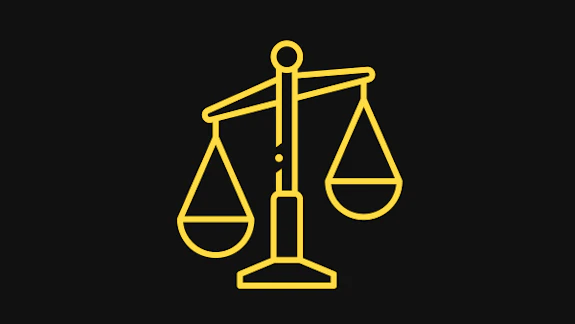Exploring Different Areas of Law
Find Your Specialism and Career Path
Looking to kickstart your career in law but not sure what area to specialise in?
Read on to get a better understanding of the different areas of legal practice, how the work and pay differ, and some tips on making the move.
Jump to
Finding your speciality
When narrowing down the area of law you want to specialise in, it’s important to prioritise your skills, passion, and goals to make your decision. Choosing your law career path is as much about your own interests and goals as it is about what is in demand.
Passion
One of the most important factors you need to consider when narrowing down the different areas of law that you want to specialise in is your personal passion. A career in law is an impressive but challenging path, so passion is vital for career fulfilment and performance. If advocacy is important to you, you might want to consider a path in family law, immigration law, or human rights.
Skills and strengths
It’s also important to play to your skills and strengths when narrowing down your choices. If you have strong mathematics and administrative skills, then you may enjoy a legislation-heavy specialism such as tax law. If you possess strong foreign language and people skills then a specialism like immigration law may be more for you.
Now’s not a time to be humble. Identify strengths such as language, compassion, maths or communication and use them to find the roles that will allow your career to thrive.
Career goals and expectations
Just like any career, it’s important to map out what your goals and expectations are for the role. For example, is working in a big firm important to you, or are you looking for something a little smaller? Do you want to prioritise a work-life balance over a high-profile position? Is stability a priority for you over challenge and excitement? If so, then a recession-proof speciality like wills and probate might be perfect for you.
Whatever your career goals, understand how specialising in the different areas of law can help you get there.

Areas of legal practice
When you know your strengths and the career goals you’re aiming for, you can investigate the different areas of legal practice and find the one for you.

Corporate law
Lawyers specialising in corporate law generally govern the functioning of companies in areas such as mergers, acquisitions, and lifecycles. Corporate lawyers are required to have extensive knowledge of business law, communication, and negotiation skills. The clients for corporate lawyers vary in size and industry but there is usually always high client expectations and strict time pressures. Their average salary in the UK is £70,000 a year.
Commercial law
Commercial lawyers specialise in the sale of goods and services, manufacturing and product liability, consumer credit, insurance, banking, and international trade. They assist with transactions and managing and validating legal arrangements and deals. Many of their responsibilities are focused on analysing and drafting terms of agreement contracts and employee contracts. This means that financial literacy, commercial awareness and attention to detail are among the vital skills for the role. Their average salary is around £65,000
Environmental law
Environmental law is still a relatively newer area of demand and legislation. Environmental lawyers advise and advocate for the protection of natural resources and the corporate impact on the environment. The litigation cases in environmental law can be high profile and high value and can be pursued through both criminal and civil courts. So, a background in science or data analysis is recommended due to the volume of complex information that needs to be processed in environmental reports. Their average salary is £65,000.
Family law
Family lawyers deal with a range of clients and are versatile in their areas of expertise, often dealing with everything from prenuptial agreements to adoption. Their responsibilities are generally split between private and public law. Family lawyers are required to have strong people and negotiation skills, as well as administrative abilities. According to Payscale, the median salary for family lawyers in the UK is £39,669 a year, with upper earners bringing in over £62,000 annually.
Immigration law
Immigration lawyers provide their clients with support on immigration issues such as application assistance, immigration advice, and appeals. They also provide administrative reviews and judicial review services and can represent their clients in administrative courts. This role requires the utmost commitment and sensitivity, as well as a strong passion for human rights and knowledge of international and domestic politics. According to Payscale, their average pay comes in at £41,913 a year, with high-earners bringing in more than £73,000 annually.How do practice area salaries differ?
The highest-paid areas of law in the UK are corporate and commercial law whereas the lowest-paid areas of law are usually family law and immigration. Both are generally above the minimum average salary in the UK.
It is important to remember that within any legal practice area, there will be varying salaries that won’t have anything to do with the area of expertise. The salaries are affected by factors such as tenure, experience, location, and demand. It’s also worth noting that smaller firms are likely to pay significantly less than bigger firms.


Work experience
When deciding which area of law you want to specialise in, work experience placements and pupillages provide you with valuable insight into the different demands and requirements. These placements are also a great opportunity to figure out what you don’t like as well as what you do.
Consider the opinions of our BPP alumni for valuable insights and advice on the different areas of law from a newly qualified perspective.
Tips for applying to a law firm
Whether you’ve chosen your specialist area of law, or are looking to gain valuable work experience, you need to take care when applying to law firms. When applying for any role, ensure that you are knowledgeable about the firm you are applying to, and the clients and law that they specialise in.

Final thoughts
Although the requirements may differ from country to country, qualifying as a lawyer is a challenging journey that pays off. Whatever lawyer career path is the best fit for you, each one offers its own unique rewards and experiences. As legislation and technology is subject to frequent updates, it’s important to stay flexible and prioritise your learning.
It’s important to understand the difference between barristers and solicitors first, so you can make the right decision for you.
Looking to learn?
Got a passion for law? Explore BPP’s law firm application guide today and find out how we can support your law career path with our pupillage application guide.

FAQs
All areas of law can be rewarding. Choosing the best field for you depends on several factors, including your pre-existing skills, interests, and career goals.
Corporate law, for example, is in high demand right now. The role is varied and challenging and is the perfect fit for those with great negotiation skills and a strong knowledge of business law. If you feel your strengths and passions lie elsewhere, you’ll probably have a more successful legal career in those fields.







